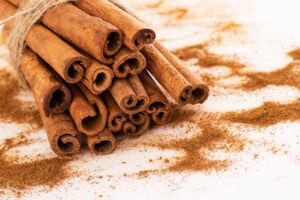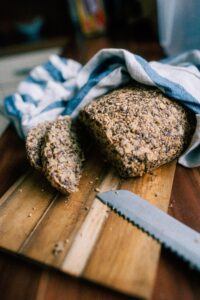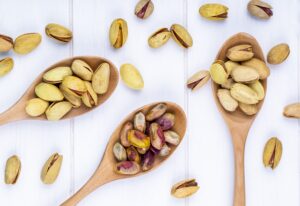Why Garden Cress Seed Deserves a Place in Your Diet?
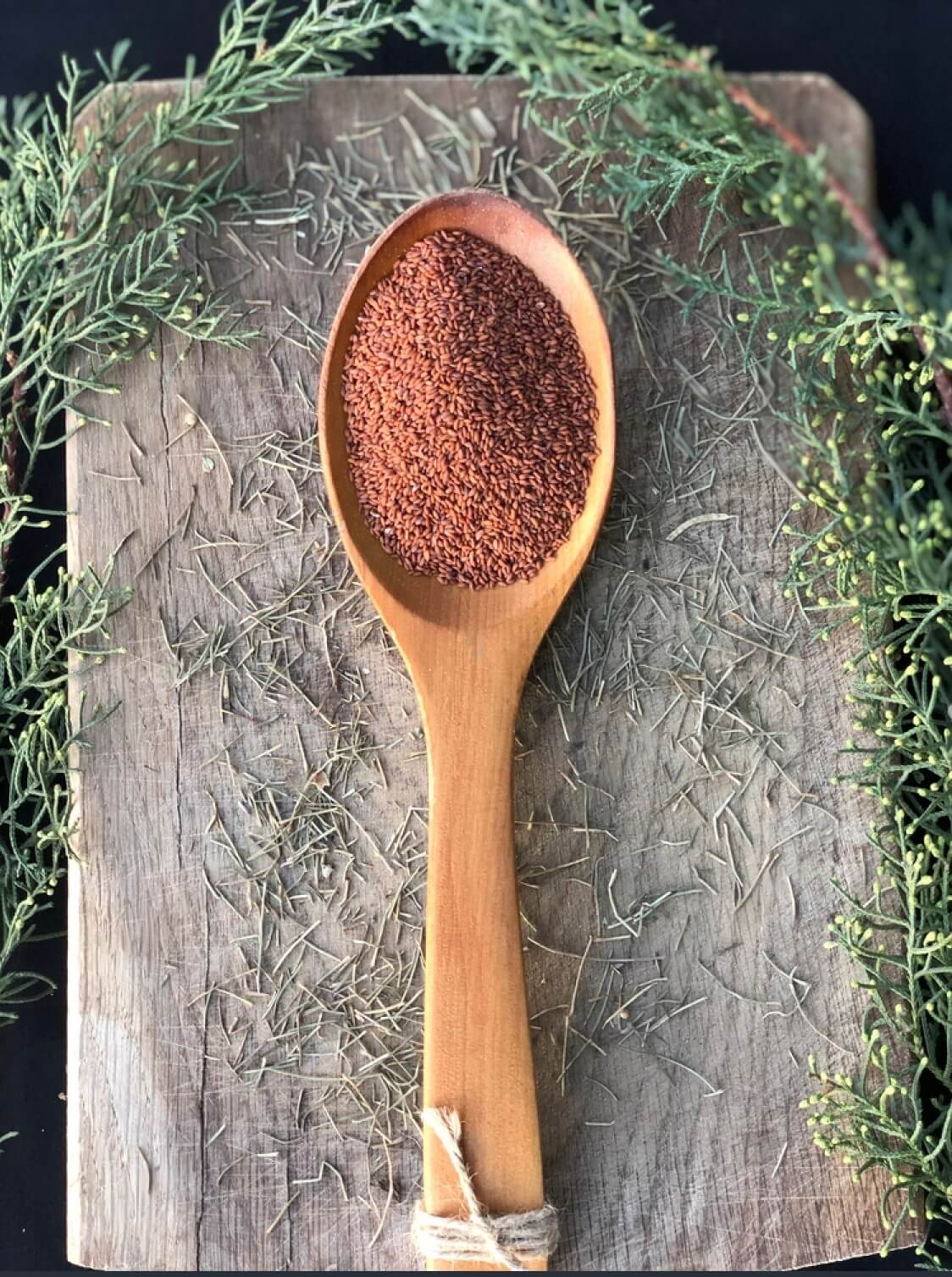
Cress seed, also known as Lepidium sativum Linn, is a herb commonly used in salads, soups, and smoothies in India, Africa, China, and other eastern countries because of its distinct flavor and nutritional value. It is considered an important nutraceutical seed due to its numerous nutritional and pharmacological properties. Cress seeds are rich in nutrients such as iron, folate, vitamin C, A, E, fiber, and protein, and can provide numerous health benefits when included in your diet. In addition to its nutritional value, cress seeds have been shown to possess various pharmacological properties★, including diuretic, expectorant, aphrodisiac, antibacterial, gastrointestinal stimulant, gastroprotective and laxative. Studies have also shown that garden cress seeds exhibit antirheumatic★ and bronchodilatory potential★. This article discusses the nutritional, antimicrobial, phytochemical, and pharmacological aspects of cress seeds and highlights their potential for various medicinal uses.
Health Benefits of Cress Seeds
1. Prevents Asthma
Studies conducted on garden cress seeds have shown that they can help alleviate asthma symptoms★. This is due to the presence of n-butanol fractions in watercress seeds that have been found to improve lung function. In fact, a study was conducted to test the effectiveness of cress seeds in treating bronchial asthma. Patients were given finely powdered dried seeds at a dose of 1g three times a day with water for four weeks. After four weeks of consuming the cress seed powder, patients with bronchial asthma showed significant improvement in their symptoms and the severity of their asthma attacks decreased. Cress seeds are also effective expectorants★ and can be beneficial for patients with bronchial asthma. Additionally, chewing on cress seeds can help treat cough and sore throat because they have bronchodilator properties★.
2. Anti-Cancer Properties
Cress seeds contain a compound called Gluconasturtiin, which can help prevent the growth of tumors by stopping the production of certain enzymes. Additionally, cress seeds are rich in antioxidant vitamins, such as vitamin C, which can help protect against cancer, inflammation, and oxidation. To get the most benefit, it’s best to consume cress seeds in their raw form because cooking them can reduce their effectiveness. Studies have shown that the aqueous extract from cress seeds can significantly decrease the viability of cancer cells, especially breast cancer cells★. This extract contains organosulphur compounds that have been shown to help with carcinogenic detoxification, cell cycle arrest, apoptosis, and the inhibition of tumor cell proliferation. High doses of the aqueous extract have also been found to be toxic to cancerous cells. Overall, cress seeds have anti-cancer properties and can be useful in the treatment of tumors.
3. Diuretic Effect
Aqueous and methanolic extracts of cress seeds have diuretic effects that increase sodium excretion, while the aqueous extract specifically increases potassium excretion. As a result, cress seeds are considered beneficial for treating hypertension and related kidney disorders★. Cress seeds possess numerous other properties★, including antihypertensive, Hepatoprotective, nephrocurative, and nephroprotective effects. Imidazole compounds found in garden cress seeds have been shown to have an antihypertensive effect on the body. Studies have examined the pharmacological activity of garden cress seeds on arterial blood pressure and renal function in both normotensive and spontaneously hypertensive patients, indicating that daily oral administration of aqueous extract of cress seeds for three weeks exhibited antihypertensive and diuretic activities.
4. Fracture Healing Ability
Cress seeds are known to have a high content of vitamin K, which is beneficial for the healing of fractures★ and preventing bone loss and osteoporosis. Vitamin K is crucial for directing calcium into bones and maintaining bone health, while also preserving bone integrity. It also helps regulate the process of bone renewal by balancing hormones. Adequate calcium intake is important for the composition of bone matrix, and magnesium is necessary for its absorption. Garden cress is particularly beneficial for bone health★. Studies have shown that consuming cress seeds can significantly increase the healing of fractures compared to those who did not consume cress seeds, suggesting that they play a major role in promoting and accelerating callus formation in fractures★.
5. Provide Cardiovascular Benefits
Cress seeds are good for maintaining healthy arteries and reducing the risk of heart disease. Garden cress contains a lot of vitamin C★, which helps to keep arteries free from cholesterol. In addition, the excessive vitamin K in cress seeds helps to prevent excess calcium from the diet or supplements from building up on artery walls or heart valves. When too much calcium builds up, it can cause arterial calcification, which reduces blood vessel flexibility and increases the risk of Atherosclerosis, Stroke, and heart attack, especially when combined with high blood pressure. If you want to improve your cardiovascular health, you should add garden cress to your diet. Garden cress seed oil is also a good source of alpha-linolenic acid (about 32%)★, which is associated with lowering cardiovascular risk mortality★.
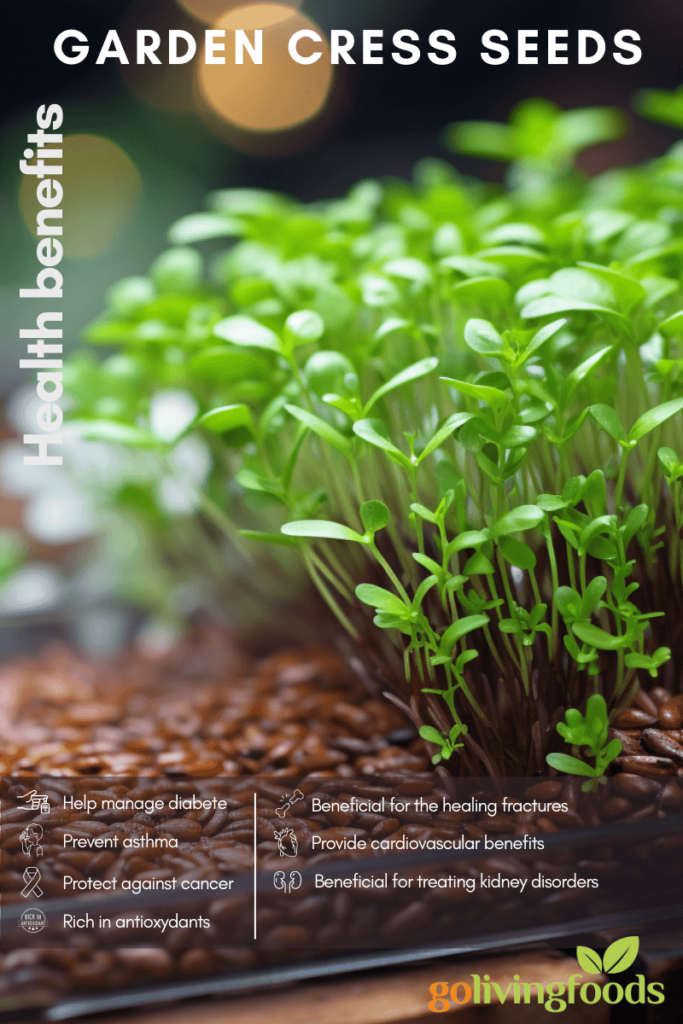
6. Antidiabetic and Hypocholesterolemia
Cress seeds have antidiabetic and hypocholesterolemic properties. They contain phytochemicals, including alkaloids, Flavonoids and Polyphenols which have properties to control diabetes and its complications★. Research has shown that adding cress seeds to meals for both diabetic and non-diabetic individuals leads to a lower glycemic response compared to meals without cress seeds. Diabetic subjects showed a higher reduction in glycemic response, which helps regulate blood sugar levels. Studies have also demonstrated that cress seeds can help lower blood glucose, cholesterol, triglyceride, and urea levels in diabetic rats★.
7. Antioxidant Activity
The methanol extract of seeds is rich in antioxidants★, which have the ability to prevent oxidative reactions that can cause damage to cells. These antioxidants can act alone or work together to provide the best possible protection. They possess properties that allow them to neutralize harmful molecules, such as singlet oxygen, and prevent lipid peroxidation.
8. Therapeutic Use
Garden cress is a plant that contains many natural compounds that have therapeutic properties. One of these compounds is an aqueous methanolic extract, which has a laxative effect that can help relieve digestive issues like constipation and indigestion★. Garden Cress is considered beneficial for improving brain function and treating a variety of ailments, including dysentery, skin diseases, and tumors★. The seeds and leaves of the plant are used to treat inflammation of the spleen, chest complaints, bronchitis, rheumatism, and muscular pains★. Boiled cress seeds with milk are used as a poultice to soothe pain and injuries. The leaves are also believed to be stimulant and diuretic and used to treat scurvy. Additionally, the plant is used to relieve a cough with phlegm and bleeding piles. Furthermore, the roots of the plant are used to treat secondary syphilis and tenesmus★.
Takeaway
Cress seeds are a nutraceutical seed commonly used in eastern countries due to their distinct flavor and nutritional value. Cress seeds are rich in iron, folate, vitamin C, A, E, fiber, and protein, and can provide numerous health benefits when included in your diet. They also have various pharmacological properties, including antirheumatic, bronchodilatory, gastrointestinal stimulant, gastroprotective, laxative, and stomachic properties. Consuming cress seeds can help prevent asthma, possess anti-cancer properties, have diuretic effects, promote fracture healing ability, provide cardiovascular benefits, and have antidiabetic and hypocholesterolemic properties.

